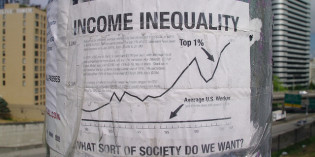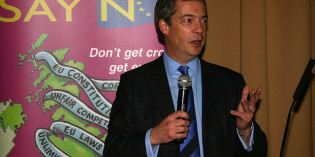Tag: Glenn Gottfried

Tackling political inequality requires a “carrot and stick” approach
The UK’s political and democratic system are under severe strain, with declining turnout and increased apathy threatening the legitimacy of the current constitutional settlement. Mathew Lawrence and Glenn Gottfried argues that in order to do something about it, new deliberative and experimental institutional forms of democratic life must be combined with the introduction of first time compulsory voting. Similar […]

It is political inequality that represents British democracy’s real crisis
People in Britain today feel both powerless and isolated when it comes to political decision making in Westminster – none more so that Britain’s white working class population who feel less confident in their ability to influence the political process than others. But these are concerns shared by a broad cross-section of society. Low levels […]

First-time compulsory voting is designed to get politicians to engage with young voters’ concerns
This week on Democratic Audit, Matt Henn and Nick Foard argued that introducing compulsory voting would risk increasing the resentment of young people toward politics. In this post we feature a response from Glenn Gottfried and Sarah Birch, who have proposed compulsory voting for first-time voters. They argue this could be an effective tool to […]

Ending the vicious cycle: compulsory turn-out for first time voters
Democratic disengagement amongst young people in on the rise, with research in a new Democratic Audit publication showing the scale of the problem. Here, Guy Lodge, Glenn Gottfried, and Sarah Birch make the case for compulsory turnout amongst first-time eligible voters, which would help to redress the power gap between younger and older citizens. Similar PostsTackling political inequality requires a “carrot […]

A vicious cycle of apathy and neglect: young citizens and the power gap
It is well known that the number of people neglecting to turn out at elections is on the increase. It is also firmly established that non-voters tend, on the whole, to be younger than the population at large. This non-participation in electoral life increasingly problematic for representative democracy as a whole. In an extract from […]


 Democratic Audit's core funding is provided by the Joseph Rowntree Charitable Trust. Additional funding is provided by the London School of Economics.
Democratic Audit's core funding is provided by the Joseph Rowntree Charitable Trust. Additional funding is provided by the London School of Economics.